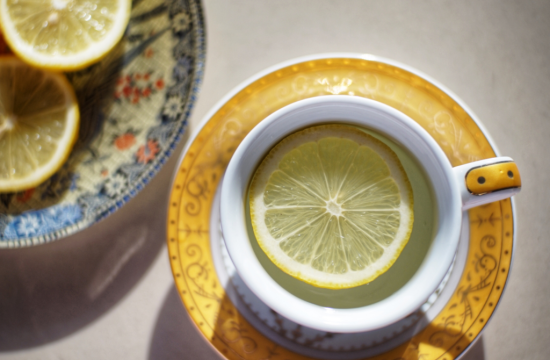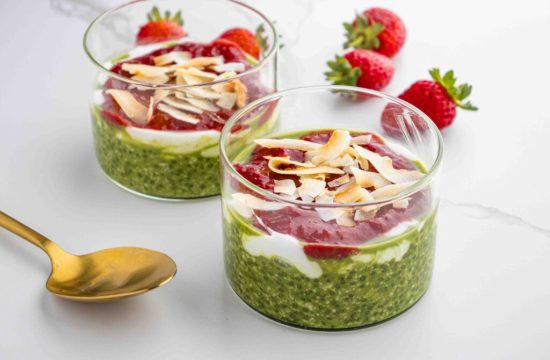The 11th chapter of Nidanasthana of Sushruta Samhita is named as Granthi Apaci Arbudam Galaganda Nidanam. This chapter deals with Benign tumor – Cervical metastasis – Malignant tumor and cervical lymphadenitis.
अथातो ग्रन्थपच्यर्बुदगलगण्डानां निदानं व्याख्यास्यामः ||१||
यथोवाच भगवान् धन्वन्तरिः ||२||
We will now expound Granthi (benign tumor) Apaci (cervical metastasis) Arbuda (Malignant tumor) and Galaganda Nidanam (cervical lymphadenitis) as revealed by the venerable Dhanvantari.
Samprapti- pathogenesis
वातादयो मांसमसृक् च दुष्टाः सन्दूष्य मेदश्च कफानुविद्धम् |
वृत्तोन्नतं विग्रथितं तु शोफं कुर्वन्त्यतो ग्रन्थिरिति प्रदिष्टः ||३||
Vata gets aggravated along with the other dosha i.e. pitta and get associated with kapha. All these doshas vitiate the muscle, blood and fat tissues. Doing so, the produce a swelling which is round in shape, elevated and cyst like. This swelling is called as Granthi – tumor.
Lakshanas – signs and symptoms
Vataja Granthi
आयम्यते व्यथ्यत [१] एति तोदं प्रत्यस्यते कृत्यत [२] एति भेदम् |
कृष्णोऽमृदुर्बस्तिरिवाततश्च भिन्नः स्रवेच्चानिलजोऽस्रमच्छम् ||४||
Below mentioned are the features of granthi produced by aggravated vata –
Nature of pains in the swelling –
– Expanding
– Hitting
– Pricking
– Cutting etc.
The swelling is –
– Black in color
– Hard on touch
– Enlarged like the urinary bladder and
– Exudes clear blood when pricked / punctured
Pittaja Granthi
दन्दह्यते धूप्यति चूष्यते च पापच्यते प्रज्वलतीव चापि |
रक्तः सपीतोऽप्यथवाऽपि पित्ताद्भिन्नः स्रवेदुष्णमतीव चास्रम् ||५||
Below mentioned are the features of granthi produced by aggravated pitta –
Nature of pains –
– Burning
– Very warm
– Feels as if smoke is being eliminated from the swelling
– Sucking pain
– Suppurates and feels as if being burnt by the fire
The swelling is –
– Red in ncolor,
– Slightly yellowish
– Bursts open when pricked, discharge of large quantity of warm blood
Kaphaja Granthi
शीतोऽविवर्णोऽल्परुजोऽतिकण्डूः पाषाणवत् संहननोपपन्नः |
चिराभिवृद्धिश्च कफप्रकोपाद्भिन्नः स्रवेच्छुक्लघनं च पूयम् ||६||
Below mentioned are the features of granthi produced by aggravation of kapha –
The swelling is
– Cold to touch
– Not discolored
– Has slight pain
– Has severe itching
– Has grown big in size, like a stone
– Develops slowly
– Bursts open when pricked and there is exudation of thick pus which is white in color
Medoja Granthi
शरीरवृद्धिक्षयवृद्धिहानिः स्निग्धो महानल्परुजोऽतिकण्डूः |
मेदःकृतो गच्छति चात्र भिन्ने पिण्याकसर्पिःप्रतिमं तु मेदः ||७||
Below mentioned are the features of the granthi produced by vitiated fat –
The swelling –
– Increases or decreases in accordance with the increase or decrease of the body
– Is unctuous
– Very big in size
– Has severe itching
– Exudes fatty liquid which resembles the sesame paste or ghee
Siraja Granthi
व्यायामजातैरबलस्य तैस्तैराक्षिप्य वायुर्हि सिराप्रतानम् |
सम्पीड्य सङ्कोच्य विशोष्य चापि ग्रन्थिं करोत्युन्नतमाशु वृत्तम् ||८||
ग्रन्थिः सिराजः स तु कृच्छ्रसाध्यो भवेद्यदि स्यात् सरुजश्चलश्च |
अरुक् स एवाप्यचलो महांश्च मर्मोत्थितश्चापि विवर्जनीयः ||९||
इति ग्रन्थीनां निदानं समाप्तम् |
Vata gets aggravated in persons who are weak and indulge a lot in more physical activities. The aggravated vata invades the network of veins and would squeeze, constrict and dry up those veins. Doing so, the vata gives rise to an elevated, rounded swelling of veins, which develops quickly. This condition becomes very painful and hence gets very difficult to cure. It also moves from one place to the other.
That swelling of veins which does not move from one place to the other, is big in size and situated on the marmas – the vital spots, should not be treated. They should be rejected even if there is absence of pain.
हन्वस्थिकक्षाक्षकबाहुसन्धिमन्यागलेषूपचितं तु मेदः |
ग्रन्थिं स्थिरं वृत्तमथायतं वा स्निग्धं कफश्चाल्परुजं करोति ||१०||
तं ग्रन्थिभिस्त्वामलकास्थिमात्रैर्मत्स्याण्डजालप्रतिमैस्तथाऽन्यैः |
अनन्यवर्णैरुपचीयमानं चयप्रकर्षादपचीं वदन्ति ||११||
कण्डूयुतास्तेऽल्परुजः प्रभिन्नाः स्रवन्ति नश्यन्ति भवन्ति चान्ये |
मेदःकफाभ्यां खलु रोग एष सुदुस्तरो वर्षगणानुबन्धी ||१२||
Medas – fat gets increased along with kapha. These two together would give rise to granthi – tumor near the lower jaw, axilla / scapula, clavicle, shoulder joint, nape of the neck and front of the neck / throat.
They are called Apaci.
Below mentioned are the features of Apaci –
– The granthi is immovable
– It is round, broad or unctuous
– It is associated with mild pain
– They have the size of seeds of Amalaka – gooseberry
– They spread like the shoal of fish eggs
– Have same color as that of the body
– Grows steadily
– There is itching and mild pain
– They disappear when pricked following which the new ones appear
Due to its slow and steady growth, it is called Apaci.
Those produced by morbid fat and kapha are difficult to cure. These persist for many years.
Samprapti – Pathogenesis
गात्रप्रदेशे क्वचिदेव दोषाः सम्मूर्च्छिता मांसमभिप्रदूष्य |
वृत्तं स्थिरं मन्दरुजं महान्तमनल्पमूलं चिरवृद्ध्यपाकम् ||१३||
कुर्वन्ति मांसोपचयं तु शोफं तमर्बुदं शास्त्रविदो वदन्ति |१४|
The doshas aggravated in any region of the body will vitiate the muscle tissue and produce muscular swelling. This swelling may occur anywhere in the body. This disease is called Arbuda by those persons who are learned in science. Arbuda manifests with the below mentioned features –
– Round in shape
– Immovable
– Has mild pain
– Big in size
– Is deep rooted
– Grows slowly
– Does not ripen i.e. pus is not formed
Bheda – kinds
वातेन पित्तेन कफेन चापि रक्तेन मांसेन च मेदसा च ||१४||
तज्जायते तस्य च लक्षणानि ग्रन्थेः समानानि सदा भवन्ति |१५|
Arbuda is produced by the below mentioned –
– Vata
– Pitta
– Kapha
– Rakta
– Mamsa
– Medas
Symptoms of these Arbudas are similar to those of corresponding types of granthi.
Raktarbuda
दोषः प्रदुष्टो रुधिरं सिरास्तु सम्पीड्य सङ्कोच्य गतस्त्वपाकम् ||१५||
सास्रावमुन्नह्यति मांसपिण्डं मांसाङ्कुरैराचितमाशुवृद्धिम् |
स्रवत्यजस्रं रुधिरं प्रदुष्टमसाध्यमेतद्रुधिरात्मकं स्यात् ||१६||
रक्तक्षयोपद्रवपीडितत्वात् पाण्डुर्भवेत् सोऽर्बुदपीडितस्तु |१७|
The doshas that are aggravated will produce squeezing and contraction in the blood and veins. This is called Rakta Arbuda – produced by blood. Below mentioned are the features of rakta arbuda which are caused by aggravated doshas and blood –
– Undergoes suppuration – pus is formed
– Formation of a ball of muscle
– Continuously discharges vitiated blood
This rakta arbuda is incurable. Those suffering from arbuda will have plenty of complications and severe loss of blood. Due to these, the person becomes a victim of pandu roga – anemia.
Mamsarbuda
मुष्टिप्रहारादिभिरर्दितेऽङ्गे मांसं प्रदुष्टं प्रकरोति शोफम् ||१७||
अवेदनं स्निग्धमनन्यवर्णमपाकमश्मोपममप्रचाल्यम् |
प्रदुष्टमांसस्य नरस्य बाढमेतद्भवेन्मांसपरायणस्य ||१८||
मांसार्बुदं त्वेतदसाध्यमुक्तं… |१९|
Causes – Being hit by fist etc.
Pathogenesis – the muscle, at the place of the body hit by fist etc. gets vitiated. A swelling occurs at that place. Below mentioned are the features of the swelling –
– Painless
– Unctuous
– Is of the body color
– There is no formation of pus
– Has stone like consistency
– Immovable
This mainly occurs in persons who have vitiated muscles and who regularly consume meat. This mamsa arbuda is incurable.
Adhyarbuda and Dvirarbuda
…साध्येष्वपीमानि विवर्जयेत्तु |
सम्प्रस्रुतं मर्मणि यच्च जातं स्रोतःसु वा यच्च भवेदचाल्यम् ||१९||
यज्जायतेऽन्यत् खलु पूर्वजाते ज्ञेयं तदध्यर्बुदमर्बुदज्ञैः |
यद्द्वन्द्वजातं युगपत् क्रमाद्वा द्विरर्बुदं तच्च भवेदसाध्यम् ||२०||
Even among the curable ones, the following kinds are fit to be rejected;
– That which flows excessively (has exudation, discharges),
– That which has developed over a marma (vital spot),
– That which has manifested / developed in a srotas (channels of the body) and
– That which is immovable (fixed)
Adhyarbuda – The arbuda which develops over an earlier (already existing) arbuda is called as Adyarbuda by those who have good knowledge of arbudas.
Dvirarbuda – Arbuda which is two in number right from the beginning (two arbudas have developed right from the beginning) or two arbudas (tumors) develop one after the other is called Dvirarbuda i.e. double tumors.
Both the above said conditions are said to be incurable.
न पाकमायान्ति कफाधिकत्वान्मेदोबहुत्वाच्च विशेषतस्तु |
दोषस्थिरत्वाद्ग्रथनाच्च तेषां सर्वार्बुदान्येव निसर्गतस्तु ||२१||
By nature, there is no formation of pus in all the arbudas. The other reason is due to the predominance of kapha and medas, stability of doshas and these being in the form of lumps or hard masses.
वातः कफश्चैव गले प्रवृद्धौ मन्ये तु संसृत्य तथैव मेदः |
कुर्वन्ति गण्डं क्रमशः स्वलिङ्गैः समन्वितं तं गलगण्डमाहुः ||२२||
A tumor is formed in the sides of the neck due to the localization of vata and kapha together. This tumor develops gradually and is associated with the features of the respective doshas. This condition is called as Galaganda.
Galaganda produced by predominance of vata
तोदान्वितः कृष्णसिरावनद्धः कृष्णोऽरुणो वा पवनात्मकस्तु |
मेदोन्वितश्चोपचितश्च कालाद्भवेदतिस्निग्धतरोऽरुजश्च [१] ||२३||
पारुष्ययुक्तश्चिरवृद्ध्यपाको यदृच्छया पाकमियात् कदाचित् वैरस्यमास्यस्य च तस्य जन्तोर्भवेत्तथा तालुगलप्रशोषः ||२४||
Features of Galaganda produced by predominant vitiation of Vata –
– Has pricking sensation
– Covered by network of black veins
– Color of the tumor – black or slight red
– It becomes very unctuous and painless with passage of time, when it combines with fat and grows in size
– Sometimes it becomes coarse / rough, grows slowly and doesn’t undergo suppuration
– Sometimes it may also undergo suppuration accidentally or without any known cause
– It gives rise to bad taste in the mouth and severe dryness of the palate and throat
Galaganda produced by predominance of kapha
स्थिरः सवर्णोऽल्परुगुग्रकण्डूः शीतो महांश्चापि कफात्मकस्तु |
चिराभिवृद्धिं कुरुते चिराच्च प्रपच्यते मन्दरुजः कदाचित् ||२५||
माधुर्यमास्यस्य च तस्य जन्तोर्भवेत्तथा तालुगलप्रलेपः |
Below mentioned are the features of Galaganda produced by predominant aggravation of kapha –
– The tumor is immovable
– It has the same color of the body
– Has slight pain
– Has profound itching
– Is cold to touch
– Is big in size
– Grows slowly
– Sometimes there is formation of pus which takes place slowly
– Is accompanied with mild pain
– There is sweet taste in the mouth and
– Coating of the palate and throat
Medoja Galaganda – Galaganda produced by predominance of fat
स्निग्धो मृदुः पाण्डुरनिष्टगन्धो मेदःकृतो नीरुगथातिकण्डूः ||२६||
प्रलम्बतेऽलाबुवदल्पमूलो देहानुरूपक्षयवृद्धियुक्तः |
स्निग्धास्यता तस्य भवेच्च जन्तोर्गलेऽनुशब्दं कुरुते च नित्यम् ||२७||
Below mentioned are the features of Galaganda produced by predominance of fat –
– The tumor is unctuous
– It is soft, white in color and has unpleasant smell
– There is absence of pain
– There is severe itching
– The swelling hangs like a pitcher gourd with small base,
– The swelling increases or decreases in accordance to the increase or decrease of the body size
– There is unctuousness of the mouth
– There is constant production of second type of voice which is always present and is unclear
Prognosis of Galaganda
कृच्छ्राच्छ्वसन्तं मृदुसर्वगात्रं संवत्सरातीतमरोचकार्तम् |
क्षीणं च वैद्यो गलगण्डिनं तु भिन्नस्वरं चैव विवर्जयेत्तु ||२८||
The physician should reject the patient of Galaganda in the presence of the below mentioned signs –
– The patient has difficulty in breathing
– All the parts of the body become soft
– Galaganda persisting for more than one year
– The patient is suffering from loss of taste
– He is emaciated and also has
– Hoarseness of voice
Galaganda definition
निबद्धः श्वयथुर्यस्य मुष्कवल्लम्बते गले |
महान् वा यदि वा ह्रस्वो गलगण्डं तमादिशेत् ||२९||
Galaganda is the name given to a swelling which –
– Adheres firmly in the throat / neck,
– Hangs loose like the scrotum,
– Either big or small in size
इति सुश्रुतसंहितायां निदानस्थाने गलगण्डगण्डमालापच्यर्बुदनिदानं नामैकादशोऽध्यायः ||११||
Thus ends the Eleventh chapter by name Granthi- Apaci- Arbuda- Galaganda Nidanam in Nidana sthana of Susruta Samhita.














